Stephen Port: 'No police penalties' in serial killer case
- Published
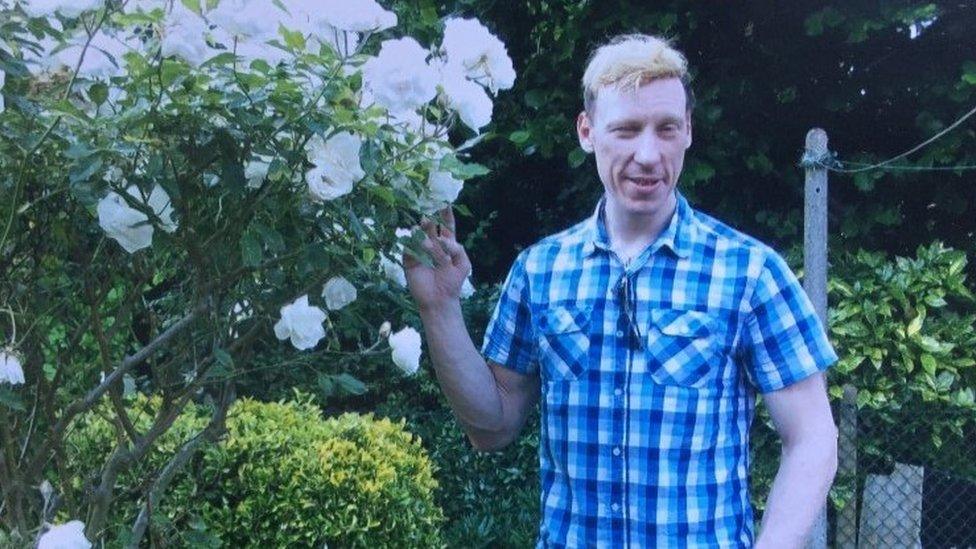
Port, now 44, from Barking in east London, was sentenced to a full life term in November 2016
None of the officers investigated for potential misconduct in the initial response to serial killer Stephen Port in east London will be disciplined, the police watchdog has said.
But the Independent Office of Police Conduct (IOPC) said its inquiry had identified "systemic failings" within the Metropolitan Police.
Nine officers will be required to improve their standards, it added.
The families of Port's victims have given an undertaking not to comment.
A spokeswoman said this was a condition demanded by the IOPC when they handed the families the final report - which is not due to be published until after the inquests for Port's four young victims.
A friend of one of the men, who repeatedly raised concerns with the police, said he was angry about the IOPC announcement.
There is currently no start date for the inquests - despite being ordered in November 2017.
'Below standard'
Port, 44, from Barking, was sentenced to a full life term in 2016 after being convicted of murdering four young men at his flat.
Officers investigating the deaths ignored or dismissed evidence linking them to Port.
The watchdog told the BBC: "While we agreed none of the officers involved in these investigations may have breached professional standards justifying disciplinary proceedings, we will be making a number of recommendations to the Metropolitan Police to address some of the systemic failings our investigation identified.
"We have advised the families of Stephen Port's victims and the officers involved that the performance of nine officers fell below the standard required.
"They will now be required to improve their performance."
A preliminary hearing at the Old Bailey heard the inquests would focus on the "adequacy of the police investigation".
The announcement means none of the 17 Met officers investigated have been referred for misconduct proceedings by the IOPC.
The Met made a referral to the watchdog in October 2015 after identifying concerns regarding the initial investigations into the men's deaths.
Ten officers were served with misconduct notices and a further seven with gross misconduct notices.
Misconduct is when an officer fails to follow expected standards of professional behaviour. Gross misconduct is when a breach is so serious it could justify dismissal.
The IOPC inquiry related to the investigative work undertaken, how evidence was examined, and how similarities between the cases were considered.
The 17, ranging in rank from constable to inspector, were largely local officers from Barking and Dagenham. None worked on the later successful murder inquiry.
Last year the BBC revealed that all but one of them gave 'no comment' interviews to the IOPC.
Between June 2014 and September 2015, Port murdered:
Anthony Walgate, 23, originally from Hull
Gabriel Kovari, 22, from Lewisham
Daniel Whitworth, 21, from Gravesend, Kent
Jack Taylor, 25, from Dagenham, east London.
He met his victims online, including through the dating app Grindr, before luring them to his flat where they were drugged and raped.
The men were given fatal overdoses of date-rape drug GHB.
Evidence heard at trial, and uncovered by a BBC investigation, showed there were a series of chances to catch Port sooner.
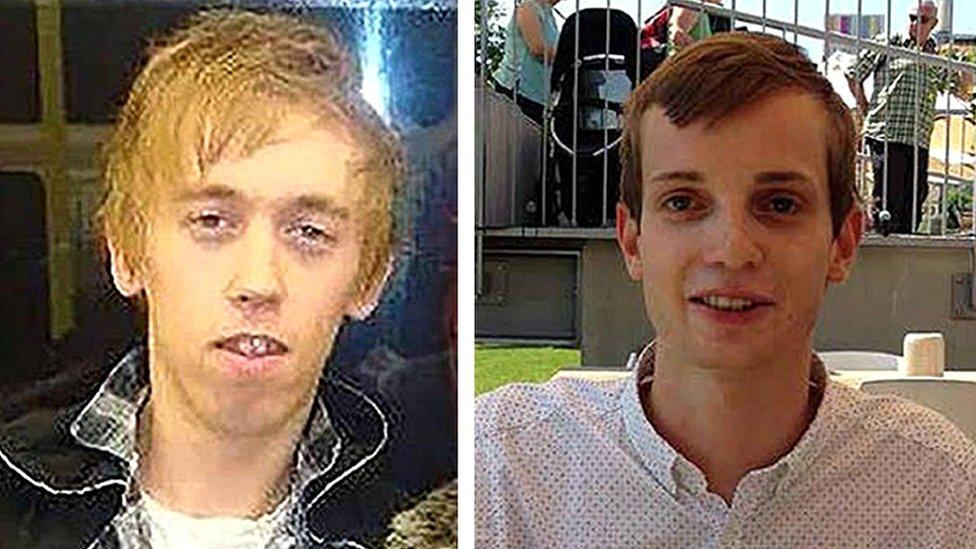
Anthony Walgate (L) and Gabriel Kovari (R) were Port's first victims
The first victim, Anthony Walgate, was found outside Port's flat and the other three either in or next to a nearby churchyard.
Port was jailed for his initial lies about the first death, but police accepted his subsequent excuses and did not treat the case as homicide.
Police did not examine a computer seized from Port, which would have revealed his interest in drugging and raping young men.
While on bail, before being charged, Port killed twice more.
Port falsely linked his second and third victims together to cover up his crimes.
A fake suicide note found in Daniel Whitworth's hand, which had been written by Port, said he accidentally killed Gabriel Kovari and was taking his own life in response.
In fact, the two victims did not know one another.
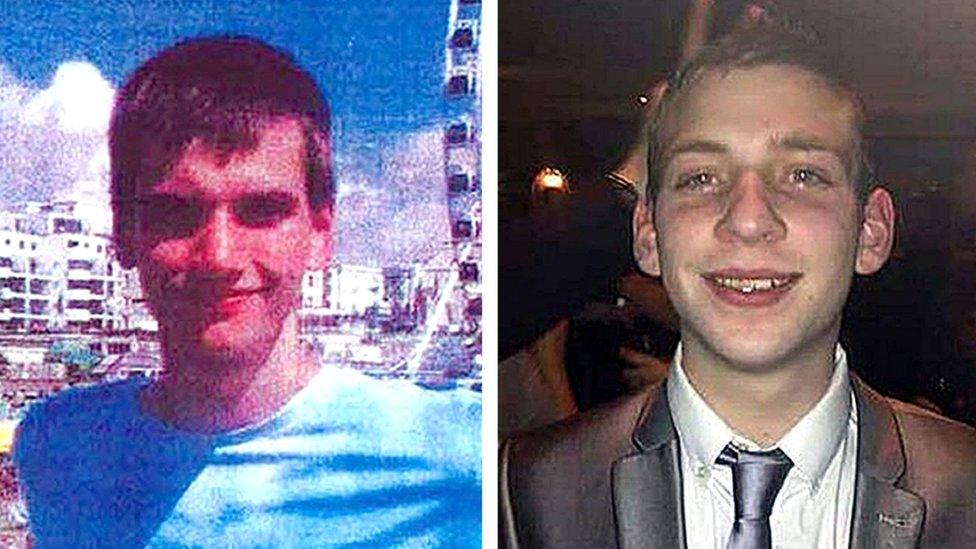
Daniel Whitworth (L) and Jack Taylor (R) were also killed by Port
Police accepted the note at face value and treated the deaths as non-suspicious, despite concerns raised by people close to both men.
The note was in Port's handwriting and bore traces of his DNA, as did items found with the bodies of Mr Kovari and Mr Whitworth.
Detectives did not trace the man referred to in the note as the "guy I was with last night", which would have led them to the killer.
Port murdered Jack Taylor after serving a short prison sentence, but police did not treat the death as suspicious for several weeks, despite the urging of the Taylor family, who investigated the case themselves and realised the other deaths were linked.
Mr Kovari's former flatmate John Pape had earlier come to same conclusion about his friend, which he pointed out to the Met in a series of emails and during an inquest.
Port used a fake Facebook profile to spread lies about the deaths, including in direct correspondence with Mr Kovari's ex-boyfriend, but police did not investigate the account despite it being sent to them.
The case was solved after being passed from local teams in Barking and Dagenham to specialist homicide detectives.
'Institutionalised incompetence'
Senior Met figures apologised to the families after the trial.
When a judge, Lord Justice Holroydehe, quashed the original inquests findings for two of the victims, he said it seemed "surprising that the initial police investigation revealed so little of the full picture and appears to have led quite quickly to a conclusion that there was no evidence of any crime having been committed by any person still living".
Mr Pape said the IOPC announcement made his "blood boil".
He told the BBC it "contrasted with the basic facts of that disturbingly incompetent initial investigation", adding: "Given the open goal they were given, it makes me wonder what the point of the IOPC is."
Mr Pape said he was "not clamouring for individual officers to be harshly punished" but was concerned about the consequences for the LGBTQ community and their families, of "institutionalised incompetence and prejudice within an unaccountable police force".
He added: "The police mishandling of the Port murders echo their previous failings in other serial killings of young gay men.
"I want to know the Met recognise their failures and will finally learn from them."
Scotland Yard did not respond to a request for comment about the IOPC statement.
- Published25 August 2017
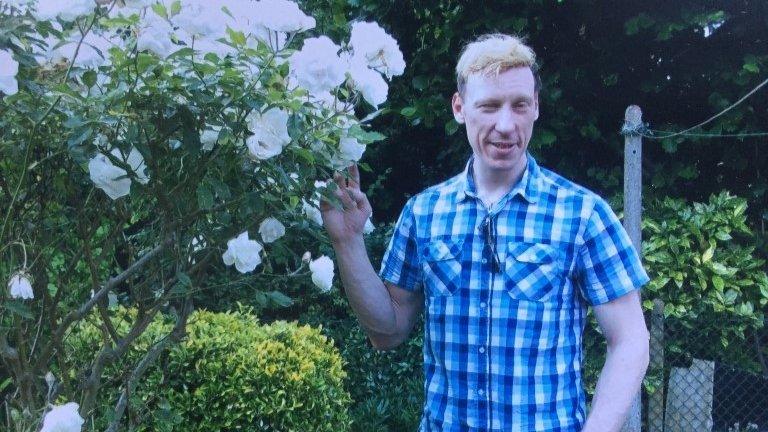
- Published5 July 2019
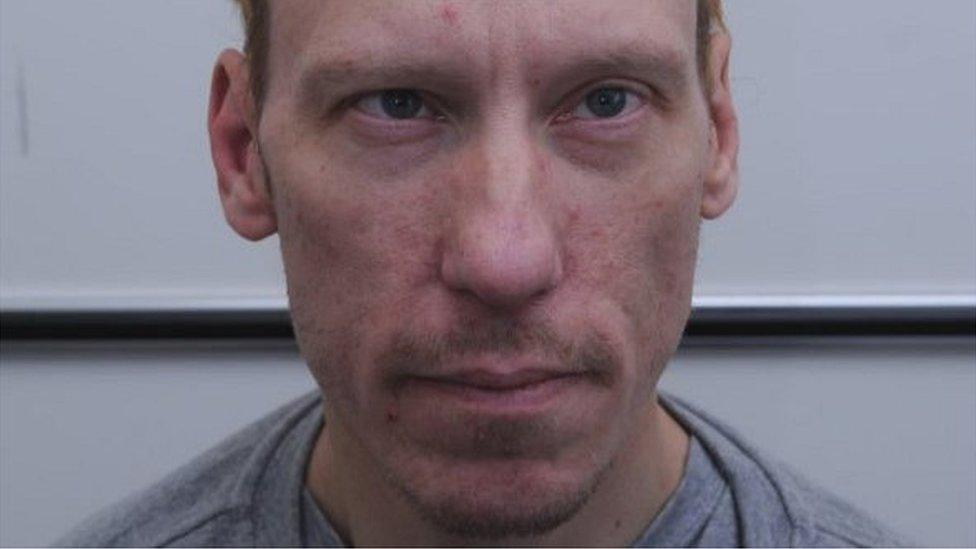
- Published26 July 2018
